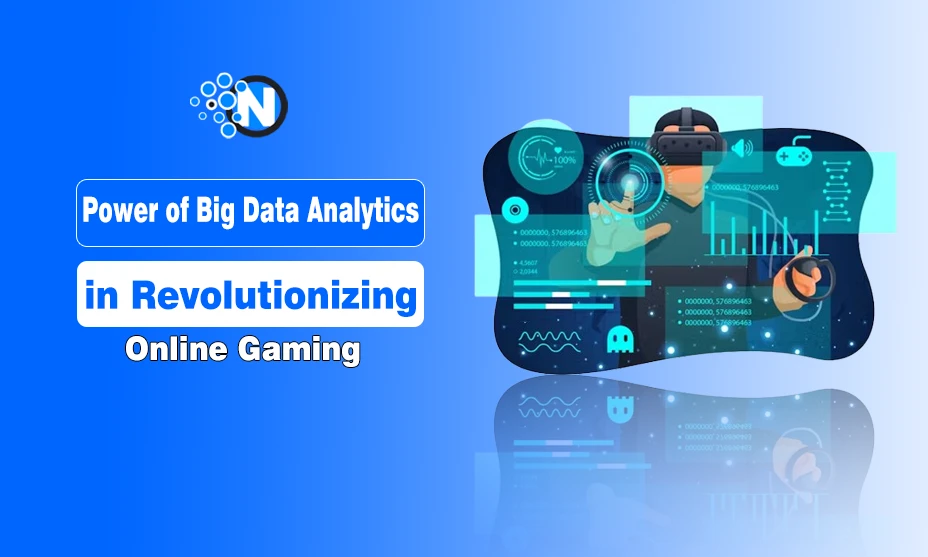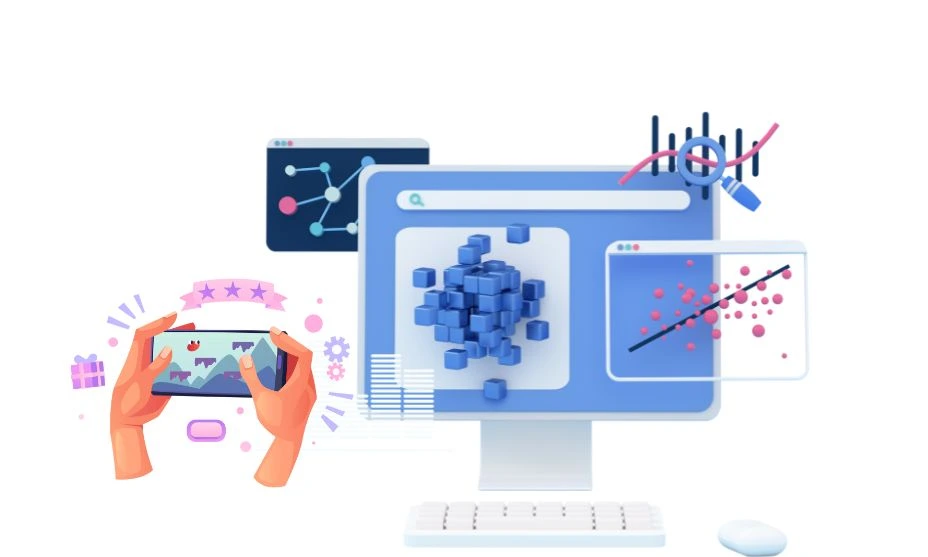The Power of Big Data Analytics in Revolutionising Online Gaming Experiences

The digital gaming landscape is experiencing an unprecedented transformation through big data analytics, with the global online gaming market projected to reach $153.57 billion by 2030. Leading platforms demonstrate how data-driven approaches revolutionise player experiences and operational efficiency in online gaming.
In this blog post, I will discuss the power of big data analytics in revolutionising online gaming.
Let’s start!
Big Data and Online Gaming
Just like other industries, big data is also making its waves in online gaming to deliver exceptional gaming experinces. Social platforms embedded in advanced games such as in slotocash.im rely on massive samples of players’ data to design specific experiences. Every day, platforms receive terabytes of information about players’ actions, game preferences, and purchase history. It also helps casinos gather complete data that allows them to analyse players’ behaviour and preferences with great accuracy.
With the strategy of personalized gaming, which has been developed and executed, platforms are reflecting positive outcomes, which is up to a 20% decrease in the general downtimes of the games with the help of big data. Furthermore, around 80% of casino analysis deals with customer profiling and their betting behaviour to enhance the targeted communication approach.
Big data is used as a form of shield against emerging threats in the context of digital game playing. A real-time monitoring system is to be applied to monitor the behaviour patterns of the players to identify the fraudulent actions of the players which may cause severe damage. This proactive approach to security has become imperative, within the industry more so with the expansion that the industry is experiencing.
It has been noted that big data analytics has played a tremendous role in the evolution of game development. Game developers now utilize player interaction data to:
- Track session durations and engagement levels
- Analyze game feature popularity
- Monitor player retention rates
This analytical approach is also beneficial for such an industry since the market in the European area was worth roughly USD 53 billion in 2022, with a Compound Annual Growth Rate of 11.5% from 2022 to 2027.

Operational Excellence Through Analytics
Big data has transformed operational efficiency in several key areas:
The gathered big data allows the platforms to predict regular emergencies, offering quicker and more precise solutions. Players can directly report their experiences, enabling the supporting teams to have full player data to work with for better problem-solving.
It has become easier for platforms to track promotion effectiveness as well as the performance of every single channel used. This has resulted in increased conversion rates and better player acquisition and approach.
Today’s gaming platforms support complex real-time analytics systems capable of analysing huge amounts of data within a short period. This capability allows for:
- Dynamic adjustment of gaming parameters
- Immediate response to player behaviour patterns
- Proactive risk management
- Instant fraud detection
Economic Impact and Industry Growth
Big data analytics plays an important role in many industries as its application has fostered economic industry growth. These suggest that the total market value of this transformative technology is relatively high, with global gross sales standing at $10.95 billion in 2023. They are undertaking growth to reflect the use of data in industries’ operations, and the enhanced operational strategies in the industry.
Thus, with advanced technology, big data analytics will form a more significant and critical component of the future online gaming sector. The industry’s focus on data-driven insights ensures continued innovation in:
- Player experience optimization
- Security enhancement
- Game development
- Operational efficiency
Big data analytics integration has brought significant and extensive changes to the online gaming industry by changing the way they develop, promote and play games. This technological advancement has led to the development of a new form of gaming that is advantageous for both gamers and game suppliers via several diverse uses.
Big data analytics is truly special from the player’s point of view because of the levels of personalization it allows. Instead of being able to incorporate simple playing patterns, preferences and skill levels into a game, game developers can scrutinize the totality of player behaviour data, to develop games that are responsive to the players; feelings, playing preferences, and abilities.
This gives players a variety of challenging degrees, recommends games according to the player’s preferences, and serves content with one degree of difficulty for one player. Moreover, there are matchmaking systems in the games that have attracted much attention, where players are matched through an element of skill level and play style, thus providing better competitive games.
Big data has greatly enhanced security and fraud prevention as well based on numerous successful implementations. It is now possible for advanced analytics systems to be able to pick out anomalous behaviours that could suggest cheating or fraud, thus preserving fairness within this kind of gaming. This has become especially important in Virtual World environments in which Virtual Economics and microtransactions are very present.
To game developers and operators, big data means success indicators, such as player engagement and monetization metrics, as well as optimization of business processes. By identifying the game usage patterns and player actions, it becomes possible to orient on the specific adjustment of game launching, content update and monetization. It applies more perfect business models and high-quality games that people wish to see or play rather than forcing everyone to play less interesting ones.
To Sum It Up
Considering the trends of development, it is possible to state that the application of big data in a game context will only continue to grow with the growth of new technologies. Expectations for virtual and augmented reality games and games based on cloud gaming services, will cause even more observations that have to be collected and used efficiently. It will result in more innovative and appealing game experiences and simultaneously enable developers to gain a better understanding of actual gamers’ tendencies.
These issues are also concerning the ethical aspects of data acquisition and application in gaming. Since the collection of data for analysis is usually direct among players, game developers and operators need to provide proper information about the collection of such data, privacy rights, and regulations while exploring the mostly positive aspects of this approach.




